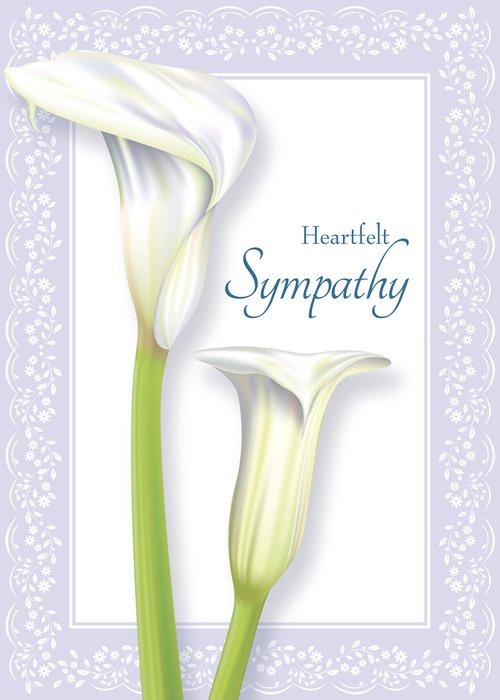Do You Know the Rules of Written Condolence Etiquette?
A condolence note can be great source of comfort to those who are grieving the loss of a loved one. This simple gesture shows your concern and lets the bereaved know they are in your thoughts.
Finding the right words to say when someone is mourning can be difficult, so we have provided the following tips and rules of etiquette to help you get started.

Choose an appropriate card.
If you are sending a sympathy card, give thought to the recipient. Many sympathy cards contain religious imagery or words that can be deeply consoling to people of faith. If you are unsure about the family’s beliefs, choose a simple condolence card that is not overtly religious. You can always make the card more personal via your message.
Don’t delay your condolences. Post an online message of sympathy or mail your card as soon as possible after learning of the passing. If you just recently heard about a loss that happened some time ago, expressing your sympathies is still important. Include a note apologizing for the delay.
Properly identify yourself.
Be sure to include your first and last name, as sympathy cards may get separated from their mailing envelopes. Keep in mind that, although you may know the person who passed on, his or her family may not know you. In this situation, it is entirely appropriate to include a short explanation of how you were acquainted with the deceased.
Keep it simple.
Whether you’re writing an online condolence message or expressing your sentiments in a handwritten note, it should not be lengthy. A short message of concern that lends your support to the bereaved during their time of grief is best. For example, “We are very sorry to hear of your loss. You are in our thoughts during this difficult time.” or “Please accept my condolences. My thoughts and prayers are with you.” are appropriate expressions of sympathy.
Choose your words carefully. The family of the departed may find it difficult to hear the words ‘dead’ or ‘died’. Instead, say that you are ‘sorry for the loss of their loved one’ or that you are ‘saddened to hear of their loved one’s passing’. Avoid mentioning how the person passed away, too, as it will not be comforting and can seem insensitive.
Feel free to share a fond memory.
Your condolence message offers the perfect time to mention a special thought or happy memory of the one who passed away. Family members are sure to enjoy reading about a fond remembrance of their loved one.
Social media should be used with great care.
Do not offer your condolences on Facebook or Twitter unless the bereaved person has already used these public platforms to announce the loss. At this challenging time, inadvertently announcing such news could be very upsetting those who are grieving. As a general rule, take your lead from the family’s online communications.
Lend a hand.
Back up your words of condolence with a sincere offer of practical help. Tell your friend that you will be there for him or her during this difficult time and then show your support. Tangible offers such as picking up groceries, running errands, cutting the grass, or preparing meals are particularly helpful because they take the pressure off the bereaved to think of ways you could pitch in.
A sympathy card or online condolence message is a caring gesture for those who are grieving. The compassionate professionals at Vaughn Greene Funeral Services are here to assist you 24 hours a day, seven days a week. Please reach out to us for more ways you can help others through their journey of loss.
About Vaughn Greene Funeral Services: For more than 20 years, Vaughn Greene Funeral Services has been providing a ministry of care to Baltimore’s African American community. As a leading local, minority- and family-owned provider, we promise to provide our highest level of service and respect to families who entrust us to honor their loved one. For more information, please call us at 410.655.0015 or visit us online at https://vaughncgreene.com/.







Comments